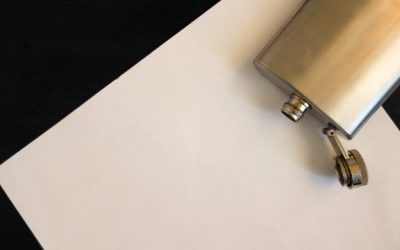Caffeine and Sleep Problems
Stop taking zolpidem and get help right away if you have any of the following symptoms of a serious allergic reaction. And it doesn’t take long to notice the difference — 80% of RISE users get more sleep within five days. If you don’t want to give up booze altogether, try avoiding it at least three to four hours before bed and limiting how much you drink. When we looked at 1.95 million RISE users aged 24 and up, we found their sleep needs ranged from five hours to 11 hours 30 minutes.

Drinking alcohol can also increase your tolerance, causing you to drink more to experience its sedative effects. It’s characterized by difficulty falling asleep, staying asleep, or both. This means people with insomnia have an increased risk of alcohol and substance use disorders.
Managing Cravings: Your Complete Guide to Staying Strong in Recovery
Your best strategy for going off your medicine is to taper your doses down slowly. Your doctor can help you figure out the best tapering schedule for you. About 27%-86% of people who try to stop taking an antidepressant have symptoms, especially when they suddenly stop taking their medicine. If you’re thinking about stopping your antidepressant, talk to your doctor. They can help you taper your doses down to help you avoid or minimize symptoms.
Symptoms
Difficulty sleeping is one of the most common alcohol withdrawal symptoms and one that causes many to relapse. Alcohol can create havoc when it comes to getting a good night’s rest by disrupting sleep cycles and increasing your risk for insomnia. It’s a frustrating situation to be in, but if you quit drinking and you are having trouble falling asleep, it’s very likely that the two are connected. Sometimes, alcohol withdrawal insomnia is bad enough to cause a relapse. Read on to learn more about alcohol withdrawal insomnia insomnia after stopping drinking as Avenues Recovery explores what it is, how it’s caused, and how long it is until sleep returns to normal after quitting alcohol. Sober nights unfold like a time-lapse flower blooming, revealing the vibrant colors of restorative sleep long masked by alcohol’s dulling effects.
Alcohol withdrawal
A rare but very serious syndrome called delirium tremens can occur during alcohol withdrawal. Also known as DTs, an estimated 2% of people with alcohol use disorder and less than 1% of the general population experience them. You don’t need to be diagnosed with alcohol use disorder in order to quit drinking. If alcohol is interfering with your health or your personal, financial, or professional life, consider quitting. Because of the damage that alcohol can do to your sleep cycles, sleep problems are common, even if you stop drinking.

How Alcohol Tricks Your Brain Into Depending on It for Sleep
A daily sleep journal can help you keep track of how well you are sleeping and identify factors that might be helping or hurting your sleep. If you are testing out a new sleep schedule or other sleep hygiene changes, your sleep diary can help document how well it is working. Daily exercise has many benefits for health, and the changes it initiates in energy use and body temperature can promote solid sleep. Most experts advise against intense exercise close to bedtime because it may hinder your body’s ability to effectively settle down before sleep. At The Recovery Village Atlanta, we are committed to helping people like you or your loved one recover completely from alcohol addiction as safely and comfortably as possible.
People with alcohol use disorder should be monitored by a medical professional when withdrawing from alcohol. Moderate to heavy drinkers can also benefit from medical supervision in the acute withdrawal stage. It can also interfere with sleep, especially if consumed too late in the day.
In many cases, insomnia is most severe within the first 12 to 48 hours of withdrawal but tends to ease as the body stabilizes. For people that quit drinking and can’t sleep… I’m SUPER PUMPED to tell you about Sleep Support because it’s an easy and affordable way to consume many of my favorite sleep-inducing nutrients. A very high percentage of alcoholics experience insomnia during acute withdrawal as well as post-acute withdrawal, which occurs after detox and can last for up to a year. The average person’s occasional insomnia is a walk in the park compared to the twitching, spiraling negative thoughts, and intense night sweats alcohol withdrawal can cause. With this therapy, your therapist will help you set Sober living home a time limit for how long you can spend in bed, like 5 hours the first week. As you progress, you can add a half hour or so to your sleep time.

Alcohol has sedative properties that may help with sleep onset, allowing you to fall asleep faster. However, people who drink alcohol before bed often experience disruptions later in their sleep cycle. Tell your healthcare provider if you have a history of drug or alcohol use disorder. The symptoms of withdrawal are not specific and easily can be confused with other medical conditions. Consequently, the clinician’s initial assessment also serves to exclude other conditions with symptoms similar to those of AW.
- Make your bedroom dark, cool, and quiet for optimal sleep conditions.
- Serious alcohol misuse can decrease your lifespan by as much as 28 years compared to those who don’t drink.
- The assessment should also include a validated measure of withdrawal symptom severity, ideally with the same instrument as the initial assessment.
- Some people find that they can experience occasional sleeplessness for a few months after quitting.
- Drinking alcohol reduces your sleep onset latency (SOL), or the amount of time it takes to fall asleep.
Severe Symptoms
To keep health risks from alcohol to a low level, the UK Chief Medical Officers (CMOs) advice is to drink no more than 14 units a week. Unfortunately, withdrawal and recovery can lead to problems with sleep, which may play a role in exacerbating drug cravings and increasing the risk of relapse. Taking steps to protect your sleep can help you feel better and cope more effectively as you work toward drug and alcohol recovery. Sleep problems during recovery happen because your body is out of its normal circadian rhythm. The time you spent in the past using drugs or drinking in excess has changed the way your body works, and this commonly includes sleeping patterns. Seroquel withdrawal is thought to be considerably rarer than this percentage.
